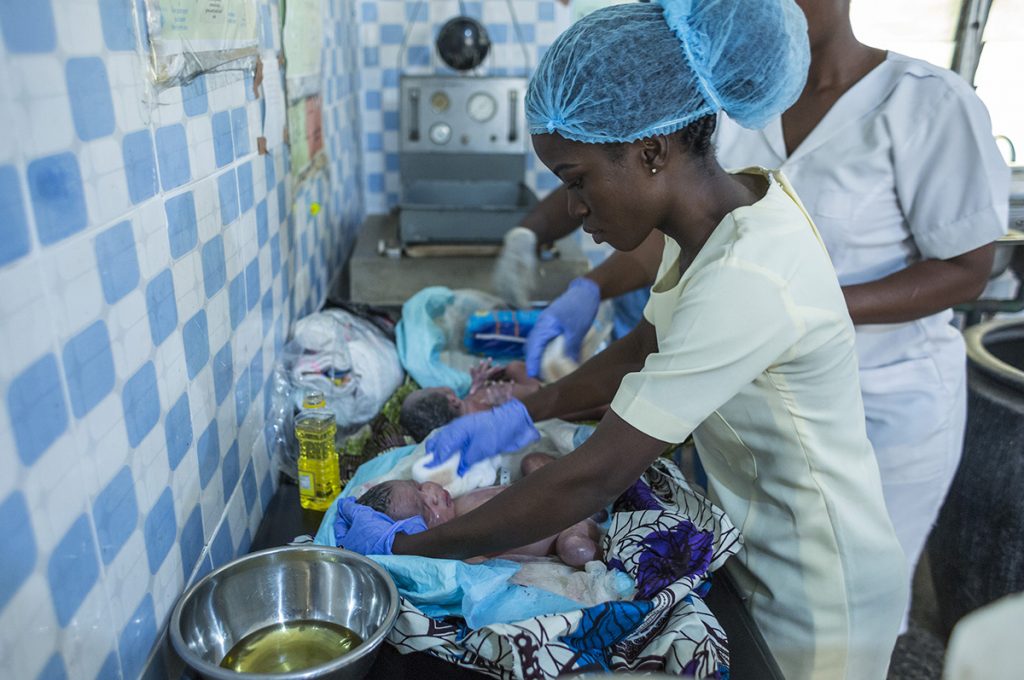Written by Professor Ian Roberts, Professor of Epidemiology at LSHTM and co-lead of the WOMAN-2 Trial.
I read with interest Kasia Strek’s article in the Guardian this week, “Pregnancy is not a disease”, particularly in relation to our work in Nigeria conducting the WOMAN-2 Trial, which seeks to make childbirth safer.
As Strek points out, Nigeria is the biggest economy in Africa, but its rate of maternal mortality is one of the worst.
In Nigeria, half of young women are anaemic and many are severely anaemic. When they get pregnant their anaemia only worsens, putting their own life and the life of their baby at risk. Most don’t know they are anaemic, having never been tested and therefore never treated – something we take for granted in many parts of the world.

Many arrive to give birth already critically ill and would face a high risk of death even in the best hospitals in a high-income country. But Nigerian women do not give birth in the best hospitals. They give birth in dilapidated hospitals, inadequately staffed by health workers who often don’t get paid for their work and lack the equipment they need.
Kasia Strek’s article slaps us across the face with the sad reality of maternal health and healthcare in Nigeria. However, as Strek makes clear “the problem is too vast for doctors alone to handle.” It will take political will to stop women dying. But in the same breath as we mention political will, we must also acknowledge the damage caused by European colonisation that remains in today’s broken healthcare system.
There is no silver bullet to reducing maternal mortality. The decline in maternal deaths in the UK was not due to any game changing life saving drugs, instead higher standards of health and nutrition in women giving birth and better maternal care are far more likely explanations.
Through our work on the WOMAN Trials, we’re looking at how a cheap drug, tranexamic acid, can stop certain women dying of postpartum haemorrhage, as well as advocating for more to be done to prevent, detect and treat anaemia in pregnant women before they give birth to protect them and their babies.
It’s heartening to see this issue being highlighted in the Guardian in all its complexities. To prevent women in Nigeria from dying in childbirth, we will need a monumental and combined effort from government, healthcare professionals, international agencies like the WHO, the research community and organisations that are fighting for women’s rights. It’s the least that women in Nigeria deserve.